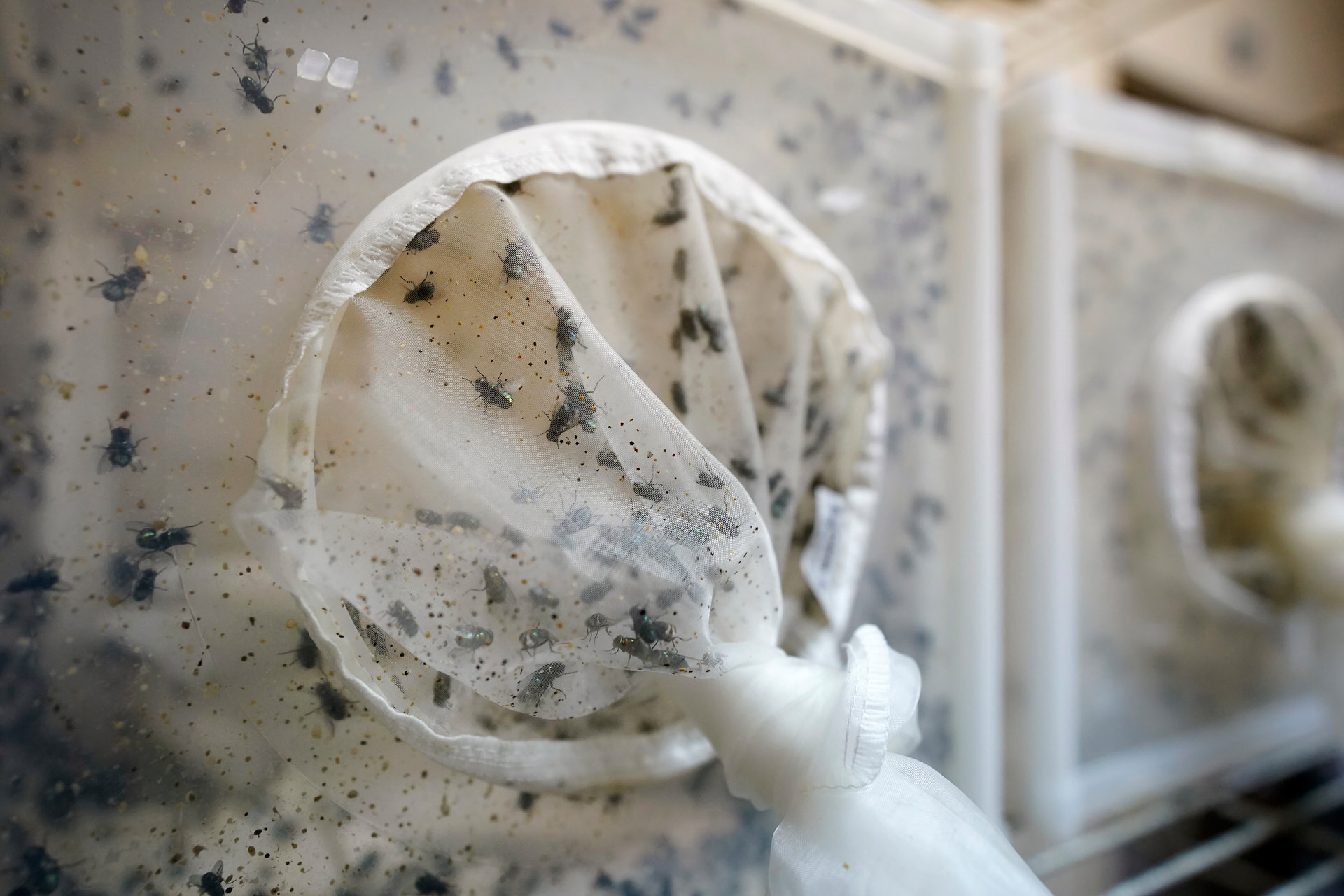
Research in Entomology
Our faculty, research staff and students conduct cutting-edge science that improves human and animal health and protects our environments to enrich our communities and global economy. Our network of scientists and academic experts are internationally recognized for their relevant, timely and innovative research conducted and applied here in Texas, across our nation and around the world.
Areas of Research Expertise
Our faculty represent a community of scholars who conduct research programs in a variety of entomological program areas and collaborate with colleagues from different disciplines at various land-grant and private universities. For a full listing of faculty, please see our Department Directory.
Arthropod Ecology
Our researchers are looking deeper to solve problems by looking at the arthropod and how it is part of the ecosystem and environment.
- Spencer Behmer, Ph.D | Behmer Lab
- Lina Bernaola, Ph.D.
- Julio Bernal, Ph.D.
- Mike Brewer, Ph.D. | Brewer Lab
- Robert Coulson, Ph.D.
- Kiran Gadhave | Gadhave Lab
- Gabriel Hamer, Ph.D. | Hamer Lab
- Anjel Helms, Ph.D.
- Raul Medina, Ph.D. | Medina Lab
- Megha Parajulee, Ph.D.
- Robert Puckett, Ph.D.
- Hojun Song, Ph.D. | Song Lab
- Greg Sword, Ph.D | Sword Lab
- Pete Teel, Ph.D. | Tick Research Lab
- Jeff Tomberlin, Ph.D. | Tomberlin Lab
- Ed Vargo, Ph.D. | Vargo Lab (Urban Entomology)
- Lloyd T. (Ted) Wilson, Ph.D.
- Kyle Slusher, Ph.D.
- Erick Motta, Ph.D. | Motta Lab
Biological Control
Our researchers are always finding ways to help the environment by looking at different biological control methods to reduce pesticides while protecting plants and people.
Forensic Entomology
Our faculty are understanding and researching new ways insects and arthropods that inhabit decomposing remains can be used to help in a variety of legal investigations.
Insect Genomics and Molecular Biology
Our faculty are discovering new ways to control pests by using genetics to target specific insects or the pathogens that they may be vectoring.
- Zach Adelman, Ph.D. | Adelman Lab
- Spence Behmer, Ph.D | Behmer Lab
- Kiran Gadhave | Gadhave Lab
- Kevin Myles, Ph.D.
- Patricia Pietrantonio, Ph.D. | Pietrantonio Lab
- Juliana Rangel, Ph.D. | Honey Bee Lab
- Cecilia Tamborindeguy, Ph.D. | Tamborindeguy Lab
- Hojun Song, Ph.D. | Song Lab
- Aaron Tarone, Ph.D. | Tarone Lab
- Ed Vargo, Ph.D. | Vargo Lab
- Keyan Zhu-Salzman, Ph.D.
- Garett Slater, Ph.D.
- Erick Motta, Ph.D. | Motta Lab
Insect Systematics and Biodiversity
Our researchers study the biology and diversity of insects and the historical evolutionary relationships that exist among them.
Insect Toxicology and Physiology
Our faculty are finding new innovations to help control pests without harming the environment by systematically targeting the insect.
Integrated Pest Management
Our researchers look for innovative ways to use integrated pest management to preserve our environment.
- Zach Adelman, Ph.D. | Adelman Lab
- Lina Bernaola, Ph.D.
- Mike Brewer, Ph.D. | Brewer Lab
- Kiran Gadhave | Gadhave Lab
- Gabriel Hamer, Ph.D. | Hamer Lab
- Phillip Kaufman, Ph.D. | Kaufman Lab
- David Kerns, Ph.D.
- Megha Parajulee, Ph.D.
- Patrick Porter, Ph.D.
- Robert Puckett, Ph.D.
- José C. Santiago-González, Ph.D.
- Sonja L. Swiger, Ph.D.
- Cecilia Tamborindeguy, Ph.D. | Tamborindeguy Lab
- Rafia Khan, Ph.D.
- Pete Teel, Ph.D. | Tick Research Lab
- Jeff Tomberlin, Ph.D. | Tomberlin Lab
- Lloyd T. (Ted) Wilson, Ph.D.
- Keyan Zhu-Salzman, Ph.D.
- Garett Slater, Ph.D.
- Kyle Slusher, Ph.D.
Medical/Veterinary/Urban Entomology
Our faculty in this area conduct research to find solutions to control arthropod borne diseases affecting both human and animal health. Some of the major arthropods we study include mosquitoes, ticks and kissing bugs.
- Zach Adelman, Ph.D. | Adelman Lab
- Gabriel Hamer, Ph.D. | Hamer Lab
- Phillip Kaufman, Ph.D. | Kaufman Lab
- Patricia Pietrantonio, Ph.D. | Pietrantonio Lab
- Robert Puckett, Ph.D.
- Sonja L. Swiger, Ph.D.
- Pete Teel, Ph.D. | Tick Research Lab
- Jeff Tomberlin, Ph.D. | Tomberlin Lab
Insect Microbiomes
Our researchers explore the complex interactions between insects and their microbial partners, ranging from mutualism to commensalism to parasitism. By studying the symbiotic relationships between insects and their associated microbes, we aim to understand how these interactions influence insect health, development, and ecology.
Our department manages the Texas A&M University Insect Collection—the largest entomological research collection in Texas. The collection is used for teaching, research and outreach efforts across state and the world.

Student Research Opportunities
Our students have access to state-of-the-art equipment and materials as they work and learn alongside our world-class researchers. Through collaborative projects and research grants, many of our graduate students work with Texas A&M AgriLife Research—the state’s premier research and technology development agency in agriculture, natural resources and the life sciences. Our College and department hosts Research Experiences for Undergraduates (REU) programs, which provides early hands-on research training for young scholars.